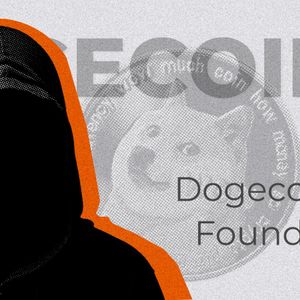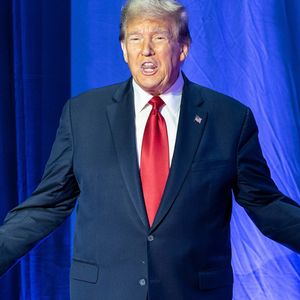Crypto.com partnership with Dubai Islamic Bank has captured the attention of the fintech and crypto communities worldwide, marking a pivotal moment for the rapidly expanding cryptocurrency exchange’s foothold in the Middle East. On December 30, 2024, the Singapore-based exchange announced on its official website that it signed a Memorandum of Understanding (MoU) with Dubai Islamic Bank (DIB), the largest Islamic bank in the United Arab Emirates (UAE) and a global leader in Islamic finance. This partnership not only cements Crypto.com’s growing presence in the UAE but also lays the groundwork for a broader market expansion across the Gulf Cooperation Council (GCC) region. With Crypto.com’s formidable global reach and DIB’s well-established reputation for Sharia-compliant financial solutions, this alliance is poised to introduce millions of potential customers to new digital asset services that meet the religious and cultural expectations of the Islamic finance community. Below, we take a deep dive into the significance of this partnership, its potential impact on crypto adoption in the UAE and beyond, and the broader trends shaping the future of Islamic banking and cryptocurrency. 1. Background: Islamic Finance and Crypto 1.1 The Growth of Islamic Finance Islamic finance, guided by the principles of Sharia (Islamic law), is grounded in the prohibition of interest (riba), speculative transactions (gharar), and investments in prohibited (haram) industries. Over the years, the Islamic finance sector has surged in popularity, particularly in Muslim-majority countries and among communities looking for ethical banking options. According to various industry reports, Islamic finance assets are valued at well over $2 trillion globally, with projections suggesting sustained growth as more institutions incorporate Sharia-compliant services. Given its emphasis on ethical investment, risk-sharing, and tangible economic value, Islamic finance has often faced difficulties reconciling modern banking practices with religious principles. However, as fintech solutions emerge, there is a budding opportunity to align innovative financial products with Islamic rules—opening the door for Sharia-compliant bonds (sukuk), Islamic insurance (takaful), and now, cryptocurrency services. 1.2 Cryptocurrency in Islamic Finance Cryptocurrencies, like Bitcoin and Ethereum, stirred debates among Islamic scholars on whether digital assets meet the requirements of Sharia compliance. Some scholars have raised concerns about volatility, speculative activity, and the uncertain nature of underlying assets. Yet, as blockchain technology matures and regulations emerge, an increasing number of Islamic financial institutions recognize the potential of digital assets—provided these products are structured in a manner consistent with Islamic principles. Projects like OneGram (a gold-backed cryptocurrency) and Islamic Coin have surfaced, aiming to blend crypto innovation with Islamic values. This has paved the way for mainstream players like Crypto.com to partner with leading Islamic banks, bridging the gap between decentralized finance (DeFi) and Sharia-compliant frameworks. 2. The Significance of Crypto.com’s MoU with Dubai Islamic Bank 2.1 Why Dubai Islamic Bank? Founded in 1975, Dubai Islamic Bank is a trailblazer in the global Islamic banking ecosystem. Renowned for pioneering contemporary Sharia-compliant banking models, DIB has amassed a customer base spanning corporate, retail, and institutional clients. Its leadership position in the UAE—one of the world’s leading financial hubs—affords it immense influence over the adoption of new banking products and technologies. Partnering with DIB offers Crypto.com immediate credibility and market access. By aligning with a bank that adheres strictly to Sharia principles, the exchange can more smoothly introduce its services to devout Muslim customers and the broader population in the UAE. Furthermore, DIB’s track record in financial innovation and robust compliance protocols could expedite the integration of crypto solutions into mainstream Islamic finance. 2.2 Expanding Across the GCC Region The UAE is part of the GCC, a regional bloc that also includes Saudi Arabia, Kuwait, Bahrain, Oman, and Qatar. Each state maintains a robust banking sector, with wide-ranging approaches to Islamic finance. Should Crypto.com’s collaboration with DIB prove successful, it may serve as a template for expanding into other GCC markets, replicating the model of Sharia-compliant crypto offerings throughout the region. By leveraging DIB’s deep-rooted connections, Crypto.com could potentially navigate regulatory landscapes across GCC countries more efficiently. Whether through additional MoUs or strategic alliances with other Islamic banks, Crypto.com stands to gain a strong competitive edge in a market ripe for digital innovation—particularly one that balances tradition with modernity. 2.3 Strengthening Dubai’s Position as a Crypto Hub Dubai has steadily been cementing itself as a global crypto hub. Initiatives like the Dubai Virtual Assets Regulatory Authority (VARA) and free zones such as the Dubai International Financial Centre (DIFC) exemplify the city’s push to create a supportive regulatory environment for digital assets. At the same time, Dubai’s leadership invests significantly in blockchain-related infrastructures (e.g., the Dubai Blockchain Strategy). By partnering with DIB, a locally founded and headquartered institution, Crypto.com ingratiates itself further with Dubai’s vision. The MoU underscores how seriously the city takes regulated crypto offerings, not only for conventional investors but also for those seeking Sharia-aligned products. This synergy may attract foreign businesses, investors, and innovators to Dubai’s blockchain ecosystem, bolstering the city’s reputation in the global crypto community. 3. Partnership Objectives and Potential Offerings 3.1 Sharia-Compliant Crypto Products One of the primary ambitions of this partnership is likely the launch of Sharia-compliant crypto services. Although specifics of the MoU are not yet publicly disclosed, these services could include: Halal Crypto Savings Accounts : Customers may deposit funds in crypto savings accounts that uphold Islamic principles, possibly paired with ethically structured returns. Tokenized Sukuk : Sukuk (Islamic bonds) issuance on blockchain platforms could streamline settlement and transparency while retaining compliance with Sharia guidelines. P2P Lending Platforms : Applying DeFi methodologies to Islamic finance might produce interest-free (or profit-sharing) lending models that circumvent riba. By adopting Sharia-compliant methods, Crypto.com and DIB can tap into the growing demand for ethical finance solutions in the Middle East and beyond. 3.2 Education and Outreach Another critical aspect of this collaboration may involve raising awareness and educating consumers about cryptocurrencies. Misconceptions persist within the Islamic finance community concerning crypto’s permissibility. If DIB and Crypto.com intend to onboard a broad user base, they must address these misconceptions head-on, providing resources on the theological and financial rationale behind Sharia-compliant crypto solutions. Workshops and Conferences : Co-hosted events could shed light on the intricacies of Islamic finance and cryptocurrencies, highlighting real-world use cases. Academic Partnerships : Collaborations with Islamic universities or research centers might produce in-depth studies or fatwas (legal opinions) on the status of crypto. 3.3 Streamlined Access to Crypto via Traditional Bank Channels Historically, one of the main obstacles to crypto adoption has been the “fiat on-ramp” challenge—how to convert local currencies into cryptocurrencies quickly and securely. Traditional banks often hesitate to process crypto-related transactions, partially due to regulatory uncertainty. By directly partnering with DIB, Crypto.com could facilitate seamless fiat-to-crypto conversions for customers within the DIB ecosystem. Clients might be able to purchase digital assets, manage crypto portfolios, and use specialized debit cards linked to their Islamic bank accounts—all in a manner consistent with Sharia guidelines. 4. The Broader UAE and GCC Crypto Landscape 4.1 Existing Crypto Regulations in the UAE Long recognized for its business-friendly environment, the UAE has advanced numerous regulatory frameworks to foster the development of blockchain and crypto solutions. Some of the relevant initiatives include: Abu Dhabi Global Market (ADGM) : The ADGM’s Financial Services Regulatory Authority (FSRA) has published comprehensive guidelines for digital asset regulation, licensing crypto exchanges, and token offerings. Dubai Virtual Assets Regulatory Authority (VARA) : Established to regulate virtual assets, VARA has introduced licensing regimes aimed at ensuring investor protection and market stability. Such measures aim to bolster public trust in crypto platforms, mitigate fraud, and support the country’s ambitions to be a global hub for digital innovation. 4.2 GCC-Wide Opportunities The GCC’s combined population is over 57 million and boasts some of the world’s highest GDP per capita figures. With a collective focus on economic diversification (beyond oil and gas), these countries are actively seeking cutting-edge technologies—crypto included. Partnerships with major Islamic financial institutions could be replicated in markets like Saudi Arabia or Kuwait, each with its own unique regulatory environment and consumer base. Furthermore, cross-border digital asset transfers within the GCC can be expedited if banks champion blockchain solutions. By offering streamlined remittance services, microfinance platforms, and multi-currency payment gateways, crypto could become a vital pillar in the region’s economic transformation. 5. Challenges and Considerations 5.1 Regulatory Hurdles Despite the UAE’s progress, crypto regulations can still be complex, with each emirate or financial free zone possibly having distinct guidelines. Regulatory Fragmentation could delay the rollout of new services, as DIB and Crypto.com must reconcile different compliance frameworks. Additionally, cross-border transactions or expansions into other GCC states might introduce more layers of legal intricacy. 5.2 Ensuring Sharia Compliance One critical challenge for any crypto venture aiming to capture the Islamic finance market is obtaining credible and respected Sharia certifications. This process involves: Sharia Board Reviews : A council of qualified scholars must examine the technical and financial structure of crypto products, ensuring they don’t involve interest or excessive speculation. Continuous Oversight : Beyond the initial certification, operational processes need periodic auditing and real-time monitoring to maintain adherence to Islamic principles. Achieving and retaining Sharia compliance is an ongoing commitment, requiring strong governance and a willingness to adapt product structures if they ever fall short of Islamic standards. 5.3 Investor and Consumer Education While crypto adoption grows globally, many consumers remain unsure about how digital assets work—let alone the complexities of Islamic finance. Lack of Clarity on risk management, volatility, or the underlying blockchain technology can deter potential users. Thorough educational campaigns, guided user onboarding, and robust customer support will be crucial in dispelling doubts and misconceptions. 5.4 Market Volatility Cryptocurrencies are famously volatile, an aspect that may raise red flags within the conservative realm of Islamic finance. Even if a product is structured to be Sharia-compliant, sharp price swings can be seen as a form of excessive speculation (maysir). To address this concern, Crypto.com and DIB might explore stablecoins or asset-backed tokens that mitigate drastic price fluctuations, providing a safer entry point into the crypto world. 6. Global Implications for Islamic Crypto Adoption 6.1 Setting a Global Precedent If the Crypto.com-DIB partnership successfully rolls out user-friendly, Sharia-compliant crypto services, it could become a benchmark for Islamic finance worldwide. Financial institutions in Malaysia, Turkey, Indonesia, and other Muslim-majority countries might look to replicate similar models, tapping into digital asset markets while retaining religious tenets. This would further unify the global Islamic financial community’s approach to blockchain and cryptocurrencies. 6.2 Advancing Halal Investments A successful deployment of Islamic finance solutions in crypto can bolster the concept of “halal investing” on a global scale. Halal investment funds, Sharia-compliant indices, and integrated digital wallets might become commonplace, opening channels for trillions of dollars in Islamic finance assets to flow into regulated crypto markets. 6.3 Strengthening Crypto Legitimacy Collaborations between reputable Islamic financial institutions and established crypto entities reinforce the notion that cryptocurrencies can be integrated into mainstream financial systems. Addressing theological, regulatory, and operational challenges signals to skeptics that the crypto ecosystem is mature and diversified enough to serve distinct markets. 7. Future Outlook and Opportunities 7.1 Expansion into DeFi for Islamic Banking One of the most promising frontiers for Islamic finance lies in decentralized finance (DeFi). Protocols that eliminate intermediaries could resonate with some Islamic principles, such as risk-sharing and transparency. Innovations might include: Profit-Sharing Lending Pools : Instead of earning interest, participants split profits from approved ventures, aligning with Islamic finance’s participatory model. Asset-Backed Tokens : Real-world assets like real estate or commodities could be tokenized, providing tangible backing for Sharia-compliant investments. A successful Crypto.com-DIB partnership could accelerate DeFi experimentation within Islamic finance. 7.2 Tapping into Remittances and Cross-Border Payments The GCC countries host a large expatriate population, and remittances form a significant economic channel. Blockchain-powered payment solutions can drastically reduce transfer fees and settlement times, making them extremely appealing. By providing Sharia-compliant, cost-effective remittance services, both Crypto.com and DIB can tap into a crucial market, potentially dominating corridor flows between the GCC and other regions like South Asia, Southeast Asia, and Africa. 7.3 Corporate and Government Collaborations Should Crypto.com and DIB demonstrate tangible results, government entities and large corporations may be next to explore blockchain solutions for supply chain management, secure data storage, and more. Islamic finance solutions that leverage tokenization and smart contracts could streamline processes like sukuk issuance for infrastructure projects or ESG-focused investments. 8. Conclusion The Crypto.com partnership with Dubai Islamic Bank represents a significant milestone, not only for both organizations but for the broader landscape of Islamic finance and cryptocurrency. By combining the global reach of a top-tier crypto exchange with the Sharia-compliant banking acumen of DIB, this collaboration aims to unlock new opportunities for consumers seeking ethical, transparent, and technologically advanced financial products. If successfully executed, the partnership could set a global precedent, paving the way for further innovation in Islamic fintech and bridging the gap between decentralized assets and traditional Sharia governance. Still, the journey is not without its hurdles. Regulatory fragmentation, the need for continuous Sharia oversight, market volatility, and consumer education remain pressing concerns. Yet, if Crypto.com and DIB navigate these challenges effectively, they could pioneer a new era of Islamic finance—one where crypto assets and blockchain solutions enrich existing services and ultimately deliver on the promise of financial inclusion and economic empowerment. In many ways, the future of this partnership is a microcosm of the broader crypto industry’s trajectory: collaboration with established institutions, a push for compliant frameworks, and the pursuit of real-world utility. As Dubai continues to solidify its stance as a global crypto hub, innovative alliances like this one will play a crucial role in shaping both the local and international fintech ecosystems. To learn more about the innovative startups shaping the future of the crypto industry, explore our article on latest news , where we delve into the most promising ventures and their potential to disrupt traditional industries.




















